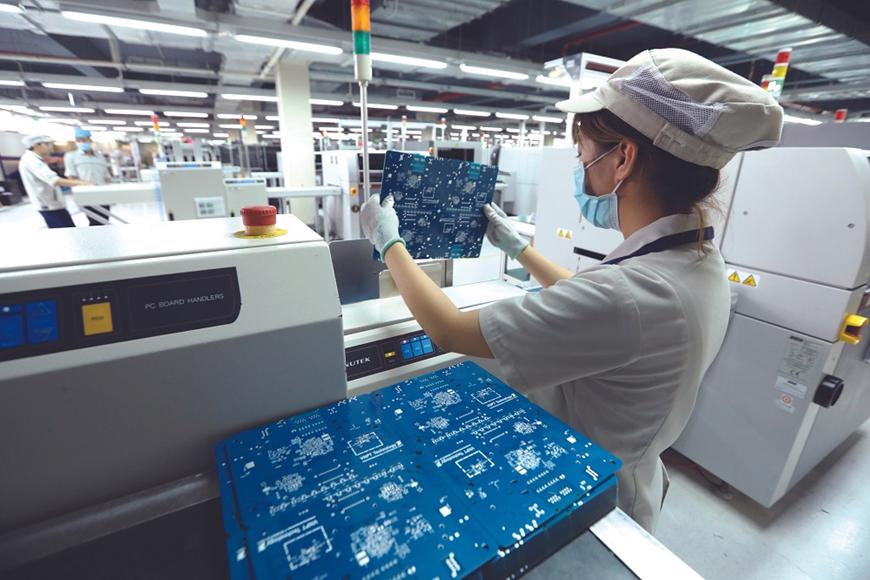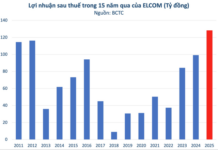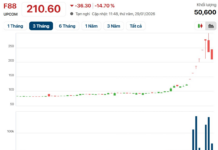The Ministry of Information and Communications is seeking feedback on the draft Law on Digital Technology Industry, which consists of 6 Chapters and 90 Articles. The law aims to promote the development of the digital technology industry, making it a significant contributor to Vietnam’s economy. The goal is to create an environment that fosters and encourages the growth of digital technology businesses, making Vietnam a leader in this field.
The focus is on developing the digital technology industry with a emphasis on Vietnamese enterprises, shifting from assembly and processing to innovation, design, and manufacturing within Vietnam. This will contribute to building a digital government and promoting a digital economy and society. By infusing digital technology into various industries, we can revolutionize work processes, create new values, and bring about a smart industry revolution.
INCENTIVES AND SUPPORT FOR THE DIGITAL TECHNOLOGY INDUSTRY
The Ministry of Information and Communications, in its draft proposal, highlights that the current legal framework for the information technology industry is over 17 years old and was established when the industry was in its infancy in Vietnam. These regulations are no longer adequate to address the issues arising in the industry’s practical development.
To boost the digital technology industry and develop a strong Vietnamese brand, it is essential to promote domestic and international markets, as well as encourage investment and strategic procurement of digital technology products and services using state budget resources. The draft law proposes several notable policies to achieve these goals.
The state will provide partial financial support to organizations and businesses participating in the above-mentioned activities, with a minimum support of 30% and a maximum of 80% of the total cost.

Additionally, for the production of digital technology products, there is a minimum of 30% Vietnamese enterprises among the total number of participating enterprises. These enterprises must also fulfill contracts for assembly, provision of components, raw materials, and manufacturing services within the country, contributing to at least 30% of the product’s value. Such enterprises are eligible for a preferential corporate income tax rate of 10% for 15 years.
Support policies for digital technology enterprises are expected to include enterprise development support, incentives for digital technology industry activities, credit policies, and financial sources for the development of the digital technology industry.
The draft law proposes that enterprises with projects for producing digital technology products can access state investment credit as per the law on investment credit. They will also benefit from preferential interest rates from the Vietnam Environment Protection Fund for pollution control and environmental protection components of their projects.
Projects for producing digital technology products will be exempt from or receive reductions in land use fees and land rents as per the law on land. Additionally, these projects will be eligible for the highest level of support in terms of compensation, assistance, and resettlement for affected project areas, as stipulated by the law on land.
There will also be preferential policies for projects with special characteristics and large-scale projects, including special investment incentives for corporate income tax and other incentives as per the law on investment and the law on corporate income tax. These projects will be able to deduct 150% of their actual R&D expenses when calculating corporate income tax. Actual R&D expenses will be determined according to the law on accounting.
Moreover, there will be a five-year exemption from personal income tax on salaries and wages for experts, scientists, and individuals with special talents working on these projects. These projects will also benefit from a 10-year exemption from land and water surface rents, followed by a 50% reduction for the remaining period. They will enjoy priority in customs procedures as per the law on customs and tax procedures for the project’s import and export goods.
PROMOTING AND DEVELOPING THE SEMICONDUCTOR INDUSTRY
The draft law also includes provisions on research and development of digital technology products and services, start-ups in the field of digital technology industry, mechanisms for testing digital technology products and services, policies to promote the semiconductor industry, and AI management and development.
Regarding research and development, the focus will be on establishing and developing digital technology research centers and formulating a research and development program for digital technology, utilizing the science and technology budget. This will be done in conjunction with promoting and supporting digital technology start-ups through funding programs, loans, and financial support, as well as building an ecosystem for such start-ups.
One notable provision is the exemption of import tax for fixed assets and goods imported for scientific research and the development of digital technology for start-ups in this field.

The mechanism for testing digital technology products and services is another breakthrough policy in the draft law. While this mechanism is not yet available in Vietnam, countries like South Korea, Japan, and Taiwan have already implemented similar regulations. This policy aims to keep up with the rapid convergence of digital technology and provide a legal framework to promote the development and application of new and innovative digital technology products and services that can bring significant value.
The testing mechanism will establish a process and criteria for reviewing enterprises’ applications for testing, with clear guidelines on the responsible authorities for handling applications and granting permissions.
The Ministry of Information and Communications emphasizes the importance of developing the semiconductor industry, given its pivotal role in the economy and national security. This is especially relevant as many global conglomerates consider investing in Vietnam. The draft law proposes special policies for the semiconductor industry, including preferential investment for new or expanded projects, mechanisms for investment matching and support, and talent recruitment in this field.
With AI being widely applied in various aspects of life, effective management is crucial to mitigate risks and maximize its benefits. The draft law aims to contribute to a breakthrough in production capacity, enhance national competitiveness, and promote sustainable economic growth. It proposes regulations on AI systems, products created by AI, prohibited AI activities, risk classification for AI systems, and management measures. It also draws on the EU’s AI Act for ethical guidelines and proposes a labeling system for digital technology products created by AI, inspired by China’s approach.
Digital assets: Based on feedback from the Ministry of Justice, the Ministry of Information and Communications has proposed the concept of digital assets, defined as a type of digital technology product. It is expected that relevant ministries and sectors will be assigned to develop and issue regulations governing digital assets in their respective areas of responsibility.
The most extensive bribery case ever in Thanh Hoa: Numerous suspects prosecuted for “Giving and Receiving Bribes”
The Provincial Security Investigation Agency (PSIA) of Thanh Hoa province announced on January 31st that it has made the decision to initiate a prosecution against 23 individuals in connection with the offenses of “Accepting bribes” and “Giving bribes” as stipulated in Article 354(3) and Article 364(2) of the Criminal Code.
Accelerating disbursement of the 120 trillion VND credit package for social housing
Deputy Prime Minister Trần Hồng Hà has recently issued directives regarding the implementation of the 120,000 billion VND credit package for investors and buyers of social housing, workers’ housing, and projects for the renovation and construction of apartment buildings.
Vietnam’s Irresistible ‘Specialty’ That China Desperately Wants to Revive: Highly Popular from the US to Asia, Bringing in Millions of Dollars
Vietnam is one of the largest exporting countries in the world, along with China and the Philippines.




















